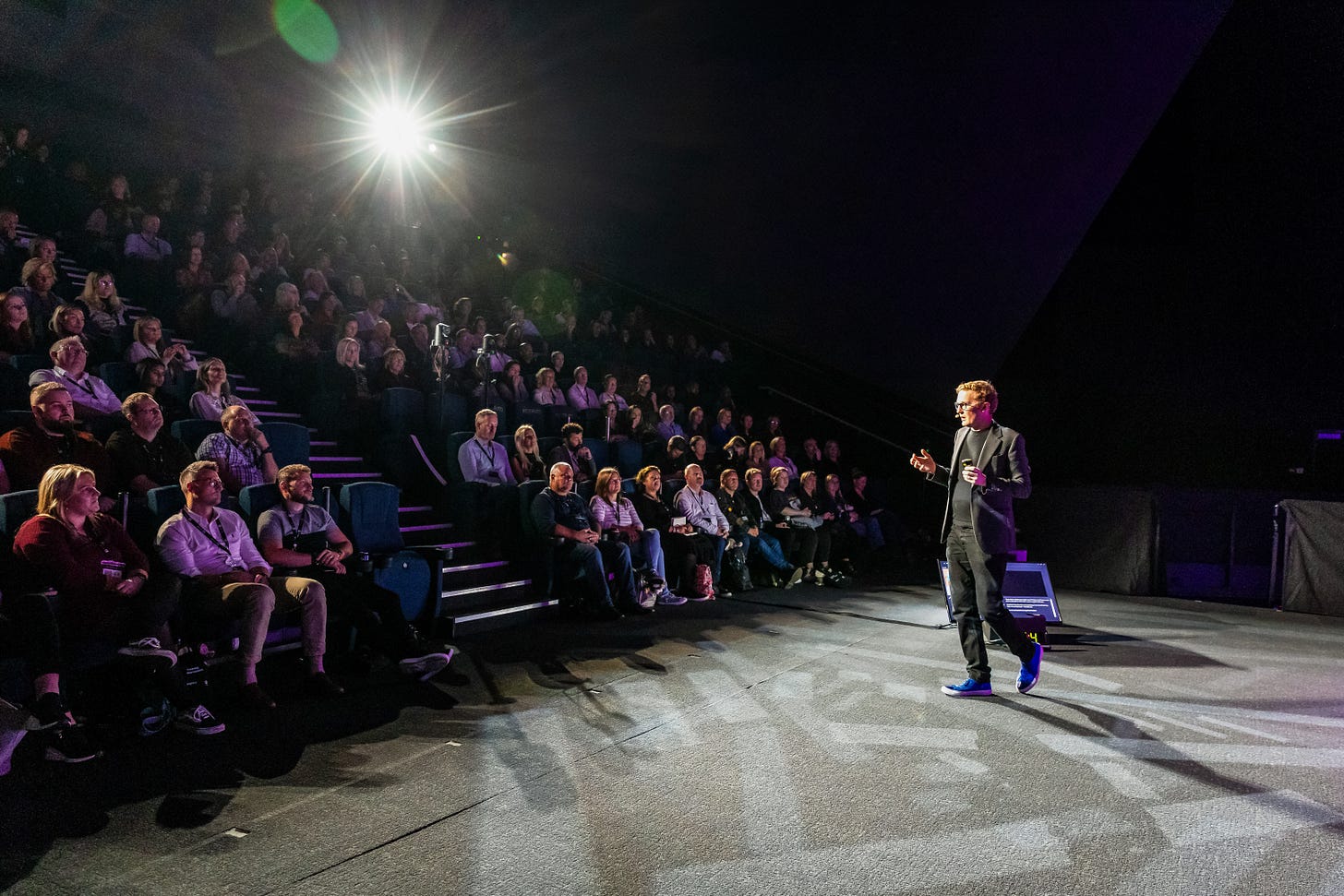The absolute best way to understand tomorrow’s trends and opportunities is to look at today’s new innovations.
I didn’t set out to write about trust this week. But as I looked through my recent bookmarks, I realised that there was a common thread linking Captions’ Mirage AI avatars, Honor’s real time deepfake detector, and Linq’s attempts to protect users’ intimate content.
Trust is essential – no industry or organisation can survive if it isn’t trusted. You’re undoubtedly deeply aware that AI is changing how and what we can trust. But it can be hard to get your head around what the future normal of such an intangible topic will look like.
This week’s innovations give you a practical, real world glimpse of how trust is evolving. And they invite you to ask some important questions: what will happen when synthetic ‘people’ take over our feeds? What defence mechanisms will we adopt to beat digital deception? And how might we stay safe when sharing our most personal photos and videos?
In a few moments, you’ll have some potential answers. But more importantly, you’ll be inspired to ask better questions about the ways you can foster trust in this Brave New World.
Let’s go…

Captions’ Mirage and the apathy of abundance
The clip of Captions' new 'Mirage' AI influencer avatars is initially mind blowing. The brand suggests that “marketing, as you know it, is about to change forever”.
I agree, but not in the direction Captions imagines. Instead, this is an early warning signal of how social media is about to eat itself.
Yes, there will undoubtedly be a bunch of AI hustlers who get rich using these to sell low value, low engagement & low quality cr*p on Tiktok. They won’t be shy about shouting about just how rich they’re getting (as they sell you a $49 AI marketing course). But this will be a small, and not especially interesting, slice of the market. Why? Because people are highly attuned to assessing value (even if that's often deeply subconsciously).
Whenever we make something easy and abundant, we devalue it. So far from being ‘the future of marketing’, the non-obvious implication of completely indistinguishable AI 'influencer' avatars will be to drive a big shift towards real world activities & smaller communities. Things that can't be generated.
Honor – native deepfake detection for video calls
On the subject of trust – Chinese smartphone brand Honor is making its built-in deepfake detection for video calls available to global users from April. The system analyses eye contact, lighting, image clarity, and playback inconsistencies in real time, claiming to flag suspected synthetic content within 6 seconds.
Honor isn’t alone here. This tool reminds me of Google’s Scam Detection, which uses on-device AI to notify users of a potential dangerous call in real-time. Neobank Revolut offers a similar feature to alert customers to potential scams.
AI will create new problems. It will also help us solve them. As ever, the question is not ‘where can we use AI?’, but ‘what jobs are we doing for our customers?’
Technology can change those jobs – for example, a customer buying a vinyl record isn’t buying it for the music itself. They’re buying it to send a signal about their appreciation of analog warmth. Their good taste. Their identity.
However, usually the jobs you do for a customer remain remarkably stable.
Telco companies are in the business of helping people communicate with real people that they want to communicate with. Banks are in the business of protecting your money. Now criminals don’t rob banks, they attempt to scam their customers online.
So before you rush to finalise your AI strategy, start by asking: “has technology changed the fundamental job we do for our customers, or merely the way we do it?”
Linqs – safe sexting, via AI
Also popping up on my newsfeed this week was Linq, a startup hoping to end revenge porn. The app prevents people who’ve been sent nudes taking screenshots of them, and uses facial recognition to blur them if the front-facing camera detects someone other than the intended recipient looking at them.
Now, while I have some questions about the practicalities of this (nothing screams spontaneity and trust like asking someone to download a dedicated privacy-protecting sexting app!), as Glamour reports, 79% of people who send nudes worry about being blackmailed or having their images shared without consent.
Indeed, part of the reason for writing about Linq is that it’s perhaps a perfect demonstration of how innovation opportunities emerge – technology gives us new ways to pursue our most basic of human needs, while at the same time creating new points of tension.
Trust is the bedrock of modern societies. And while there will be a time and a place for AI content, there will also be plenty of situations where people want innovative technical solutions that can verify whether what they are seeing and hearing is ‘real’.
But there’s a bigger, human story here too. I’ve written repeatedly that we will quickly adapt to ‘synthetic’ media, despite all the doomsday scenario headlines (there’s probably a wider lesson there about AI, too ;)
New technologies mean new behaviours, new expectations, and new opportunities. Your job is to seize them. Good luck!
Next: Inspire your team to thrive in the future normal
In the last 12 months I’ve delivered 30+ sessions, both live and virtually – from Brazil to Saudi Arabia, Las Vegas to London.
My regular trend & innovation keynotes bring fresh, cross-industry, people-first perspectives to your audience.
VisuAIse Futures takes it one step further, turning a keynote into an interactive, ‘multiplayer’ creative experience that gets your team excited at how they can use AI to accelerate your innovation culture.
Here’s what people are saying about it:
“It was so refreshing to hear how AI can be used to power human imagination, rather than replace it. And then it was even better to actually experience it”
“Fantastic session! Hugely insightful and fun, too!”
“Brilliant. The feeling in the room was positively intense whilst the images were coming through!
Feel the optimistic vibes it will bring to your event in the 2-minute video below (or watch it here).
If you’d like to discuss bringing me to your next meeting or event then please do reach out directly to Renee Strom or check out my speaking site.
Thanks for reading,





